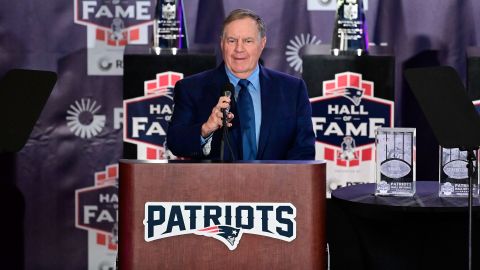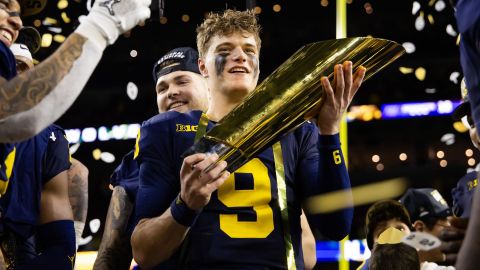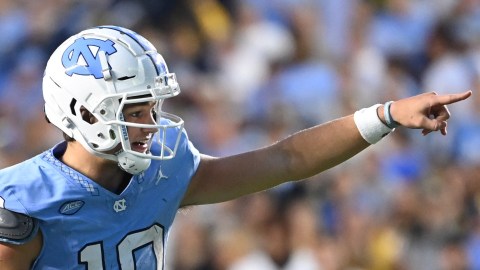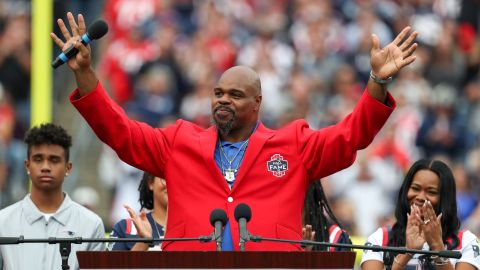FOXBOROUGH, Mass. — Richard Seymour can stay in Massachusetts as long as he wants, and he can swear off the Oakland Raiders until the end of time. But according to one NFL agent, the trade that sent the former New England Patriots defensive lineman to the Raiders in exchange for a 2011 first-round draft pick is in little danger of dying.
Mark Lepselter — whose firm, Maxx Sports and Entertainment, represents former Patriots wide receiver David Patten — said this is a valid trade but could be a landmark situation for the league.
Seymour hasn’t reported to the Raiders since Sunday’s trade, and it’s unclear whether he will report. The NFL is deflecting comments to the Patriots and Raiders, and neither team will comment on the situation. Seymour’s camp hasn’t made a public statement, either.
“I can’t recall a situation like this ever before when a veteran player refused a trade or refused to report to his new team,” Lepselter said. “Eventually, if he just refuses to go, the commissioner is going to have to get involved.”
The trade is contingent on a physical, which Seymour has yet to take. If NFL commissioner Roger Goodell gets involved with the intention of protecting the Raiders, who invested a first-round pick under the assumption they were getting a player in return, things could get tricky.
“If Richard Seymour never puts on a Raiders jersey,” Lepselter said, “I would have a hard time believing that the Patriots will waltz out of this deal with a first-round pick.”
If Seymour doesn’t report to Oakland, the Raiders can place him on the inactive list that will take away his year of service, meaning he won’t be a free agent after this season. Seymour could also retire, and that would create a legal battle involving Seymour’s salary, but it shouldn’t affect the draft pick. If Seymour retired, the Raiders would still control his services if he later decided to return to the league, similar to Brett Favre’s situation with the Green Bay Packers last year.
It would be very difficult, according to Lepselter, for the commissioner to void the trade, returning Seymour to New England and the draft pick to Oakland.
“I guess the commissioner would have to come in and make a ruling, but he can’t unwind the trade,” Lepselter said. “There’s a risk the league runs if you just go in and unwind the trade because the player decided, ‘I’m not going.’ It’s not like Major League Baseball with the 10-5 Rule [in which players with 10 years of MLB experience and five years with their current team can invoke their no-trade clause]. If you [unwind the trade] because Richard Seymour decided he doesn’t want to go play for the Raiders, then you’re opening a precedent that could void and prevent and block trades in the NFL for years to come. You can’t do that. You’re opening Pandora’s Box. Players could say, ‘Hey, I’m not going,’ and then it’s like, ‘OK, no problem, go back to your old team.’”
Because of that possible dynamic, Lepselter added, “There’s no question everybody around the league is going to pay attention to this — agents around the league and players. There’s no question. This could be a royal pain in the rear end for the commissioner.”
Speculation insists Seymour could be holding out for a contract extension from Oakland. Or, on the other end of the spectrum, he could be searching for an agreement that the Raiders promise they won’t franchise him after this season, which would keep Seymour in Oakland through 2010. Lepselter said there’s no way the Raiders would agree to that, though.
“I don’t know if they would promise him that because they wouldn’t give up a first-round draft choice for a one-year marriage,” Lepselter said. “The Raiders do some stupid things, but that would take the cake. To promise not to franchise him where he can waltz out the door next year and give up a first-round pick would be just an asinine move.”
Because this is an unprecedented situation, Lepselter said this will likely be a significant topic of discussion as it stands in the NFL’s next Collective Bargaining Agreement. He thinks Seymour’s situation could be an historic moment for the NFL Players Association in that regard. Particularly, the NFL could use Major League Baseball’s 10-5 Rule as a base in future contracts that would better protect veteran players.
Hypothetically, because 10 years is such a long time in the NFL, the NFLPA could lobby for an 8-5 Rule. As it currently stands, Seymour had no protection in his contract that would allow him to bar a trade.
“This could create some interesting dynamics with the Collective Bargaining Agreement going forward,” Lepselter said. “Maybe you try to establish something in the NFL where if you’re in the league, a la Seymour, for X amount of years and the same team for X amount of years, to get the ability to veto a trade.”



